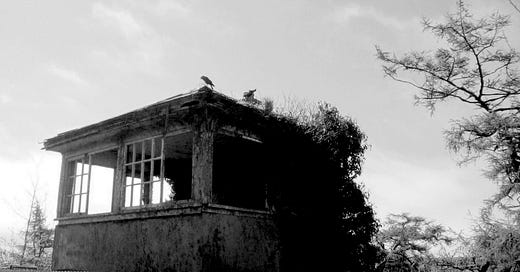Why I Don't Speak Irish
I speak fluent Italian. (Or used to.) It took me more or less three years to become proficient. Compare this to the twelve years of compulsory schooling in Irish.
As an Irish person visiting a gaeltacht (an area of Ireland where people still speak Irish habitually), you might feel a certain pressure in a B&B or a pub when the housekeeper or barman greets you in Irish and tries a quick chat to see if you're really Irish or just one of the non-Irish speaking fakes that make up the rest of the population. You're expected to answer back using any scrap of Irish you have left from the distant past. ("Tá" or "níl", usually: If you speak almost any Indo-European language you can probably attempt a satisfactory-sounding reply; Da,da, ni,ni or something.)
Most Irish people don't speak Irish and many people from my generation thoroughly hated having to learn Irish at school. Learning Irish was the linguistic equivalent to being force-fed smoked coley or white stew. I personally hated the sound of it. (Nasally, spitty and whiney were my impressions at the time - and they haven’t changed all that much, if I’m honest.) I hated the associations of the language; shoeless people in shawls packed into huts or tenements or lying, puking and crying in boats off to New York. That and people that put fake fadas1 in their names.
I hated ‘An Nuacht’ (a daily Irish broadcast of news in Irish; at the time it was usually about IRA bombings and unemployment). I hated ‘The Angelus’ (a daily Irish broadcast of bells at midday and six PM; don’t ask…). I even hated the nightly broadcast of Amhrán na bhFiann (our national anthem, which was the last thing on TV before the test card came on). Frankly, the Irish language represented just everything depressing and dull about life as I knew it.
And it’s why for most of my life I have felt that it is delusional to see Irish as the 'real' language of Ireland, no more than Sioux or Navajo are the real languages of the USA. It's just a fact that for most of us learning Irish now is not exactly a high priority. I’d go as far as to call it a first-world problem extraordinaire. In evolutionary psychology, learning Irish is a kind of conspicuous consumption - a sign that you have too much time on your hands and can afford the burden of learning a language of little or no practical use to anyone.
Notwithstanding my personal linguistic grudge, I agree with efforts to preserve the language and have a reluctant admiration for people from outside the Irish-speaking pockets of the land who wish to become somewhat fluent in their non-native native tongue. Unfortunately, there’s a distinct subset of people who successfully learn the national secret code ("cúpla focail"; ahem…) that take on an air normally reserved for ultra-marathon runners and vegans. There is always a weird sense of righteous elitism: "I've made the effort. I'm part of the cultured few that can have a two-minute conversation about the weather in Irish." It’s as if learning Irish somehow makes them extra deep. They have forged a magical bond with the past and earned the right to wear their credentials on their sleeves. (Or on the lapel of a cowpat-coloured tweed blazer with a little pin.) The more annoying ones will try to force your hand and insist on using some Irish when they meet you. This is linguistic one-up-man-ship. Don’t fall it. Don’t do the whole "Tá" or "níl" thing. Just ask them (in English) if they speak English.
Oddly, I see that according to the latest census, circa 40% of people in the country speak some Irish. Whatever the figure, I wonder what the basis for this claim is on an individual level. Surely not inter or leaving-cert results? When I did my leaving or inter-cert exam (I can't remember which; my results in both were pitiful), the guy turned off the tape recorder during the oral and quietly told me what to say when he turned it back on. He knew I had absolutely no Irish whatsoever, but like everyone else in the country doing pass-level Irish, as a matter of strict national pride, I had to pass this. It was a case of the state colluding with a citizen for the benefit of both. Thinking back on it, this mass illusion - the state pretending that everyone had at least pass-level Irish - was pretty damn close to communist bureaucracy. The lie must go on..
Anyway, if you do feel like learning Irish, here’s a good start: https://cnag.ie/en/home.html For now I am happy to be able to rattle off a few phrases that were hammered into my brain as a child. All the usual stuff. Something about a fireplace, permission to go to the bathroom, etc. None of which have been even vaguely useful at any point after my last day in school. For a list of typical Irish expressions, head to: Famous Irish Sayings with Gaelic translation (gaelicmatters.com) My favourite? There’s many a man’s mouth broke his nose…
Note: A fada is an Irish accent often incorrectly added to English names to make them look more Gaelic. It’s still common enough to find writers and politicians sexing up their names with a little dash. Probably the most famous example of a politician wanting to sound more authentically Irish is Eamon de Valera, whose real name was George de Valero, changed to Edward de Valera a little later - and then finally transformed into the name that has stayed with him to now. Complete with compulsory fada over the E of Éamon.
GS






